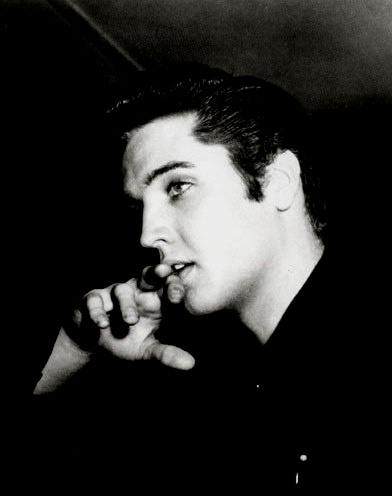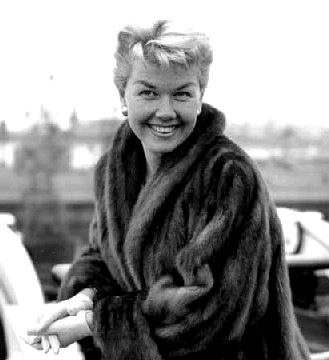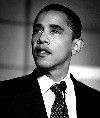Responding to President's Day 2008
Evoking Obama, Elvis, Hillary and Doris Day
By: Steve Nelson - Feb 18, 2008
On this Presidents' Day, I've been thinking about Barack Obama, and Elvis Presley. Not because Obama is often likened to a rock star, but because they both represent major chapters in the story of race and culture in America.
When Elvis emerged as a cultural phenomenon in 1956, the U.S. was a deeply segregated country. Jim Crow laws were the rule in the South, racial separation the practice almost everywhere else. Few black people could vote, much less run for President. In most states, it was illegal for a man and woman of different races to marry. Jackie Robinson was playing his last season with the Brooklyn Dodgers, but the Boston Red Sox still fielded an all-white team.
How ironic that this white boy from Mississippi took the South and then the nation by storm singing black music with a black attitude, expressing it with his body and not just the lyrics. Before vaulting to superstardom through his many TV appearances on shows aired out of New York, he was already a star in the Bible Belt from radio play and live appearances. It was the music and TV execs up North, more than the occasional outraged sheriff down in Dixie, who wanted to tone down his act.
For us white kids in my high school on Long Island, Elvis was not merely "the greatest", he was a revelation. White audiences everywhere not only loved him, they embraced the black music he loved, and the black artists who created and performed it. Their culture was becoming mainstream American culture, as the "Negroes" of a divided America were becoming the "African-Americans" of a pluralistic society.
Many people felt threatened by this change, and Republicans successfully exploited that fear with their Southern strategy. Ronald Reagan kicked off his 1980 election campaign espousing the segregationist code words "states' rights" in Philadelphia, Mississippi, where in 1964 three civil rights workers had been murdered. In 1988 George H.W. Bush flaunted the ultimate white nightmare of Willie Horton, a black murderer let loose from prison only to rape a white woman.
Bill Clinton was a change. Writing in The New Yorker in 1998, Toni Morrison called him "our first black President. Blacker than any actual black person who could ever be elected in our children's lifetime." A lifelong Presley fan, Clinton's Secret Service code name was "Elvis". When he made his TV debut as a saxophonist on The Arsenio Hall Show, he played "Heartbreak Hotel." Not only were black and white intertwined in Clinton's psyche, by the late 20th century they had become intermingled in American society to a degree unimaginable in the '50s.
Ten years later, and we have Barack Obama, an "actual black person" with a serious chance to be President. What began as a political campaign has become a social phenomenon. Beyond his near-unanimous support in the black community, he's rapidly gaining acceptance among white voters. One in four white males voted for him in the South Carolina primary on January 26. Just 17 days later in Virginia, he won more than half of their votes, and those of white women too.
Sports is often said to be a microcosm of America. That's a metaphor too easily overstated. But it is an obvious fact that for decades white guys have been cheering for the black guys on their favorite teams. White women have too, as they got more involved with physical-fitness and sports. Most fans today can't even remember when their teams didn't have black stars. So it's easy to see Joe and Jill Six Pack sitting in front of the TV watching racially-mixed Bud commercials and rooting for Obama.
Hillary Clinton is a terrific candidate: smart, tough, well-informed, articulate, compassionate, committed, and a seasoned veteran of political wars. But she's not just facing a political opponent, she's up against the onrushing tide of history. If this were '56, she'd be Doris Day, topping the charts with "Que Sera, Sera". But along comes Obama. Shake, rattle and roll.





